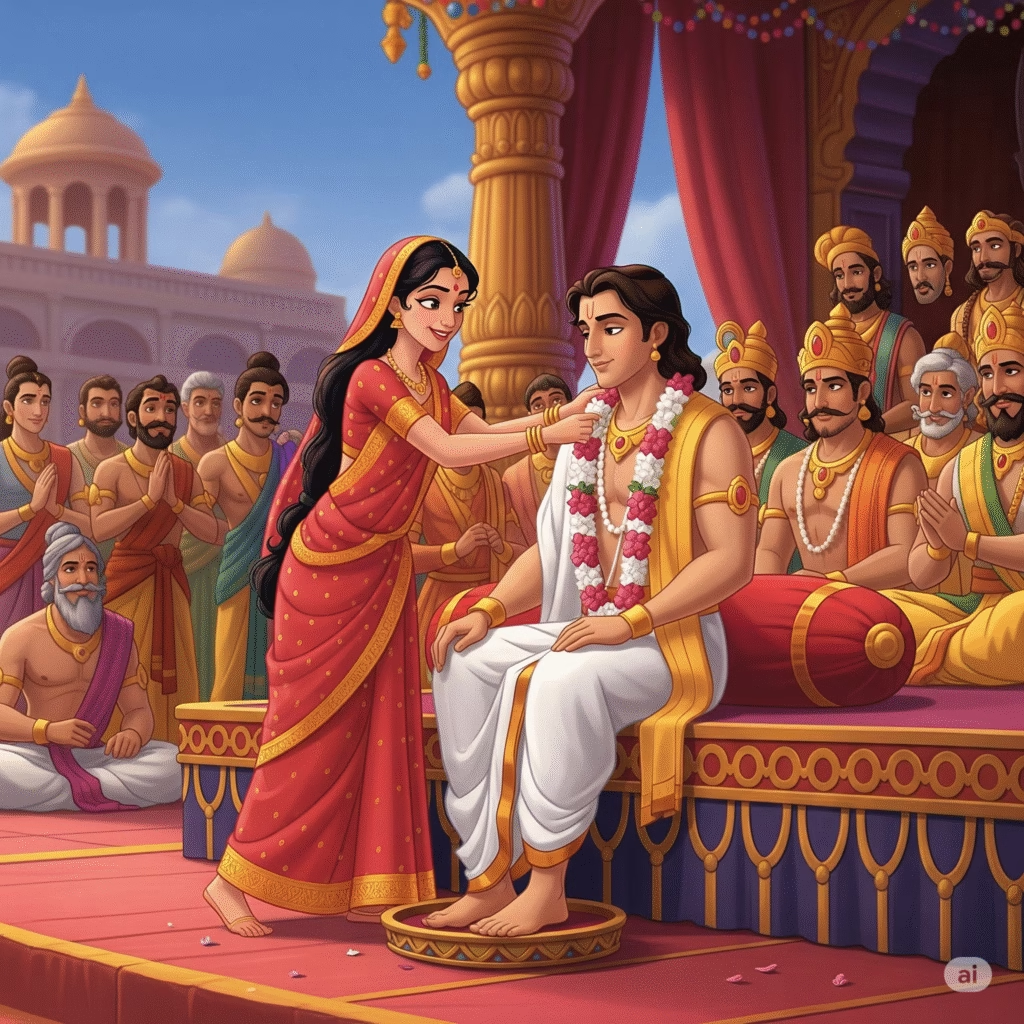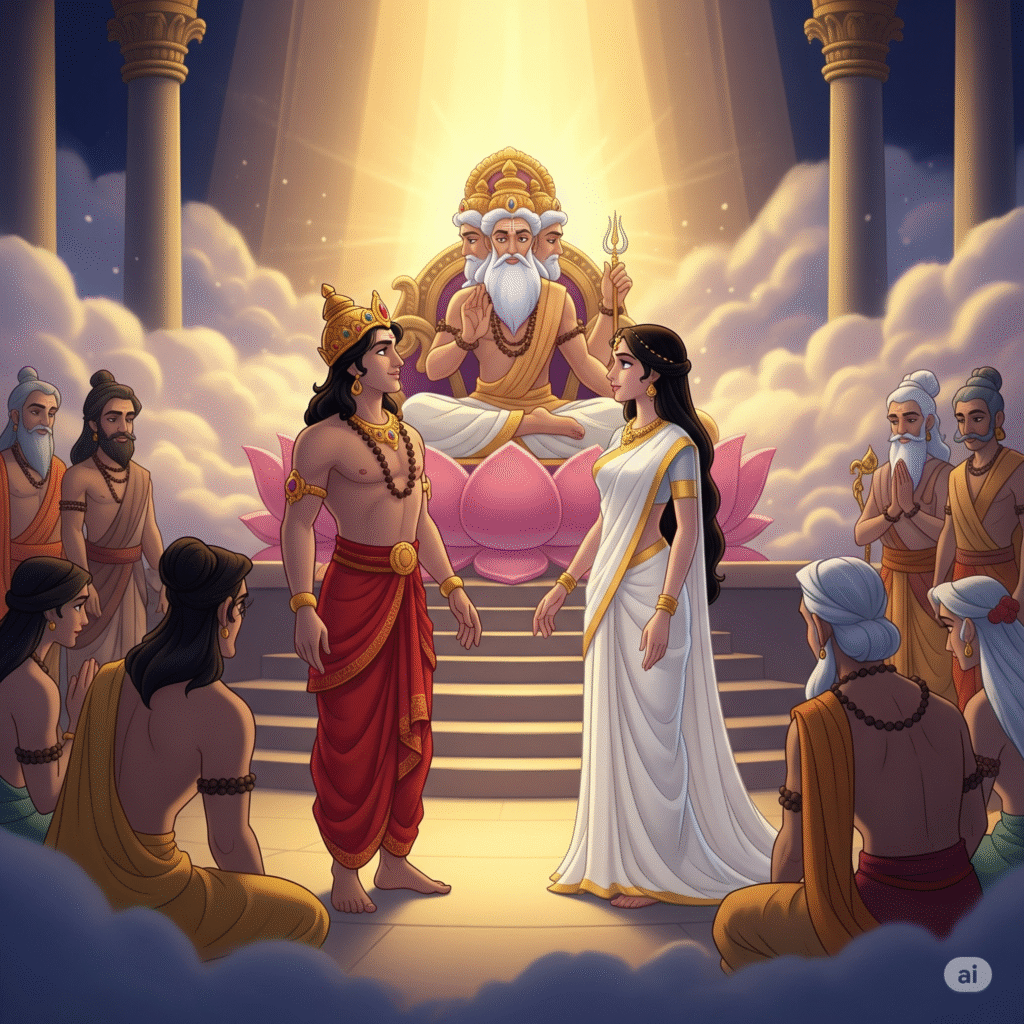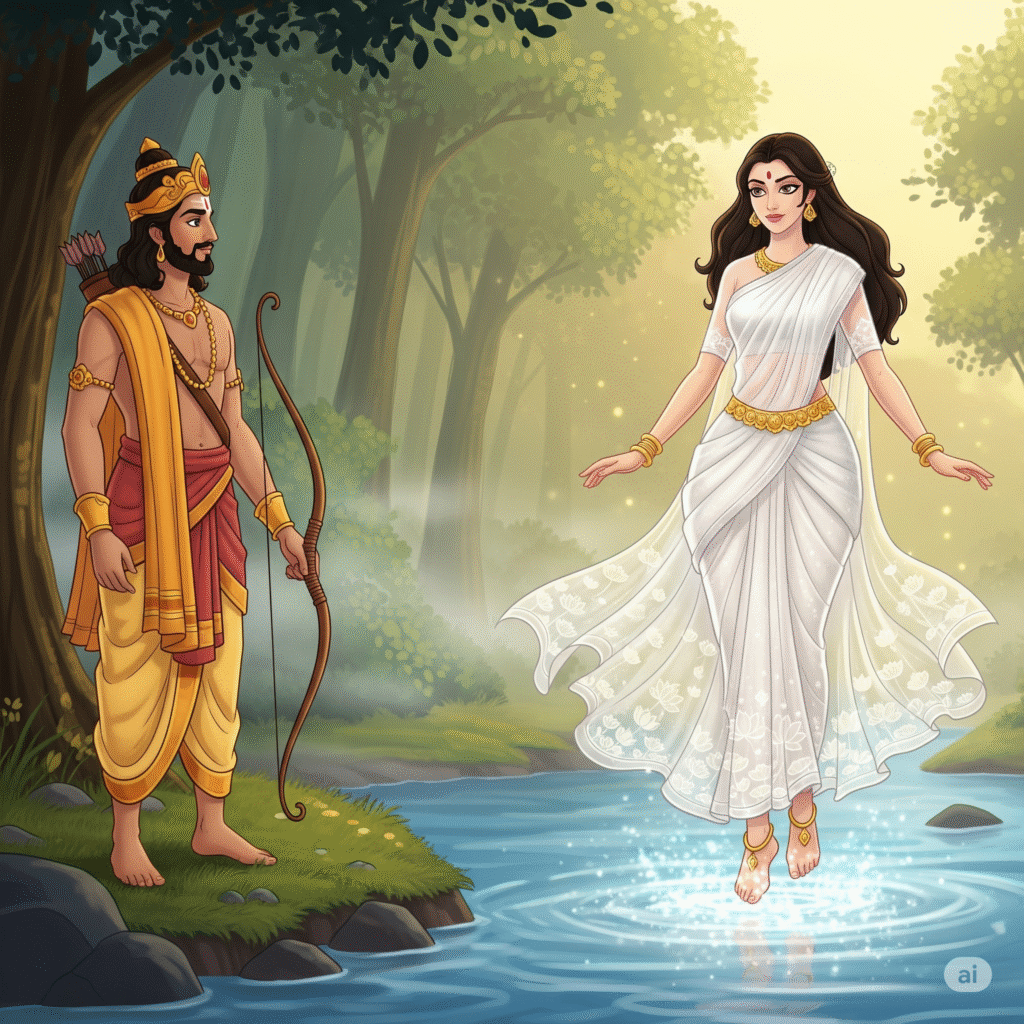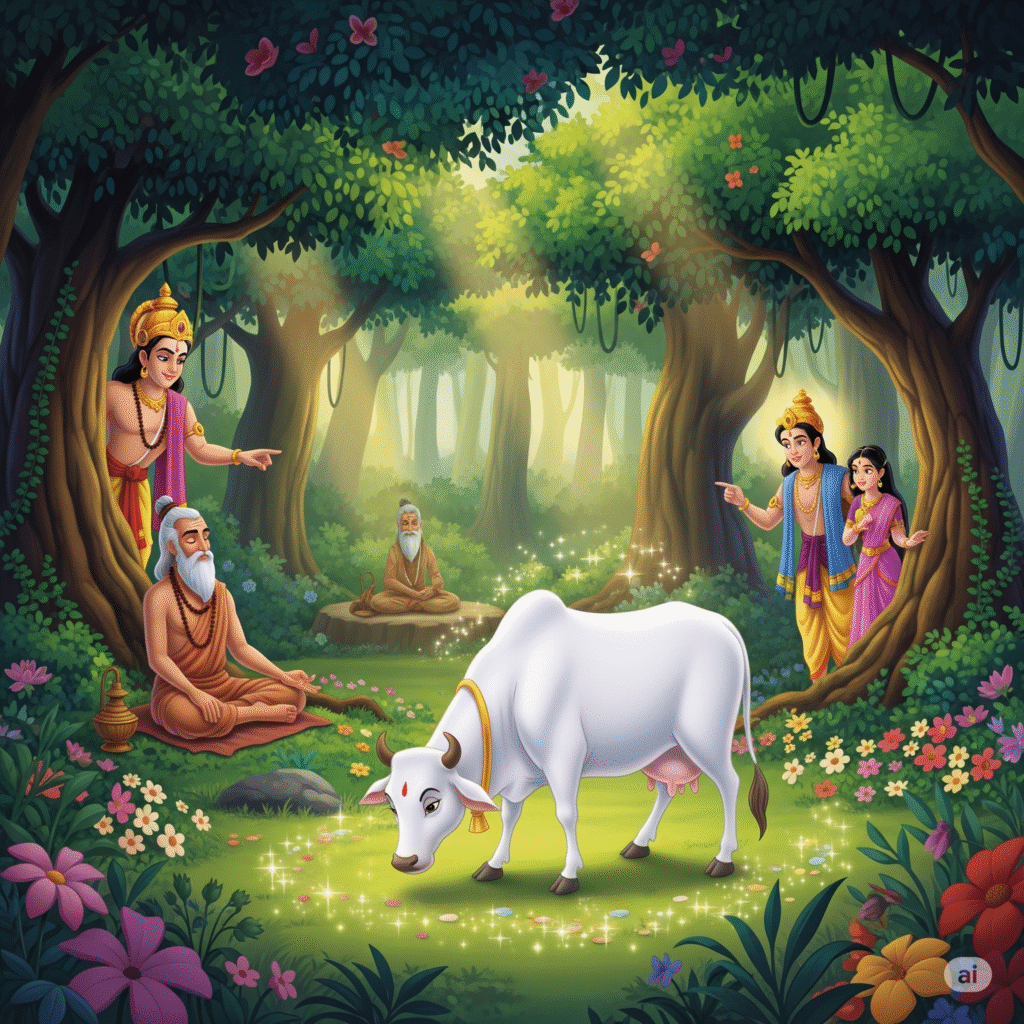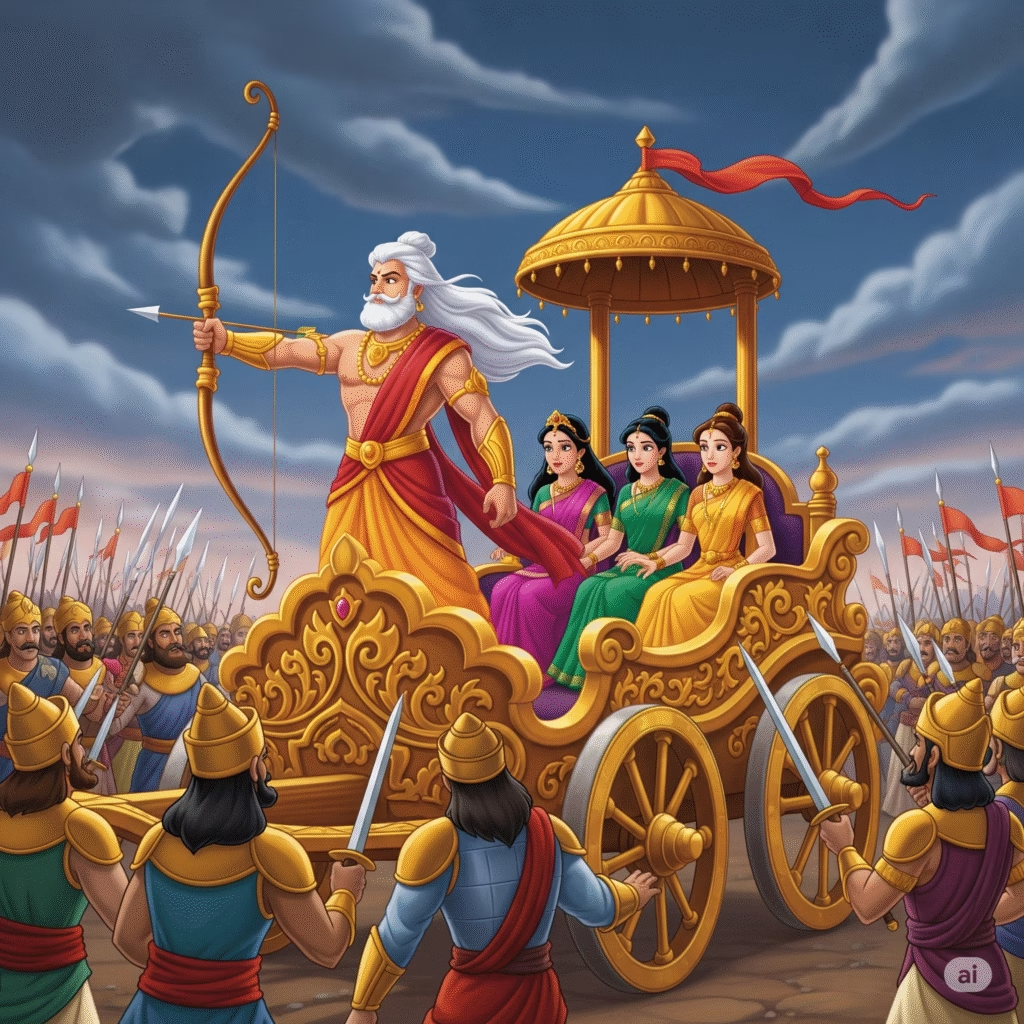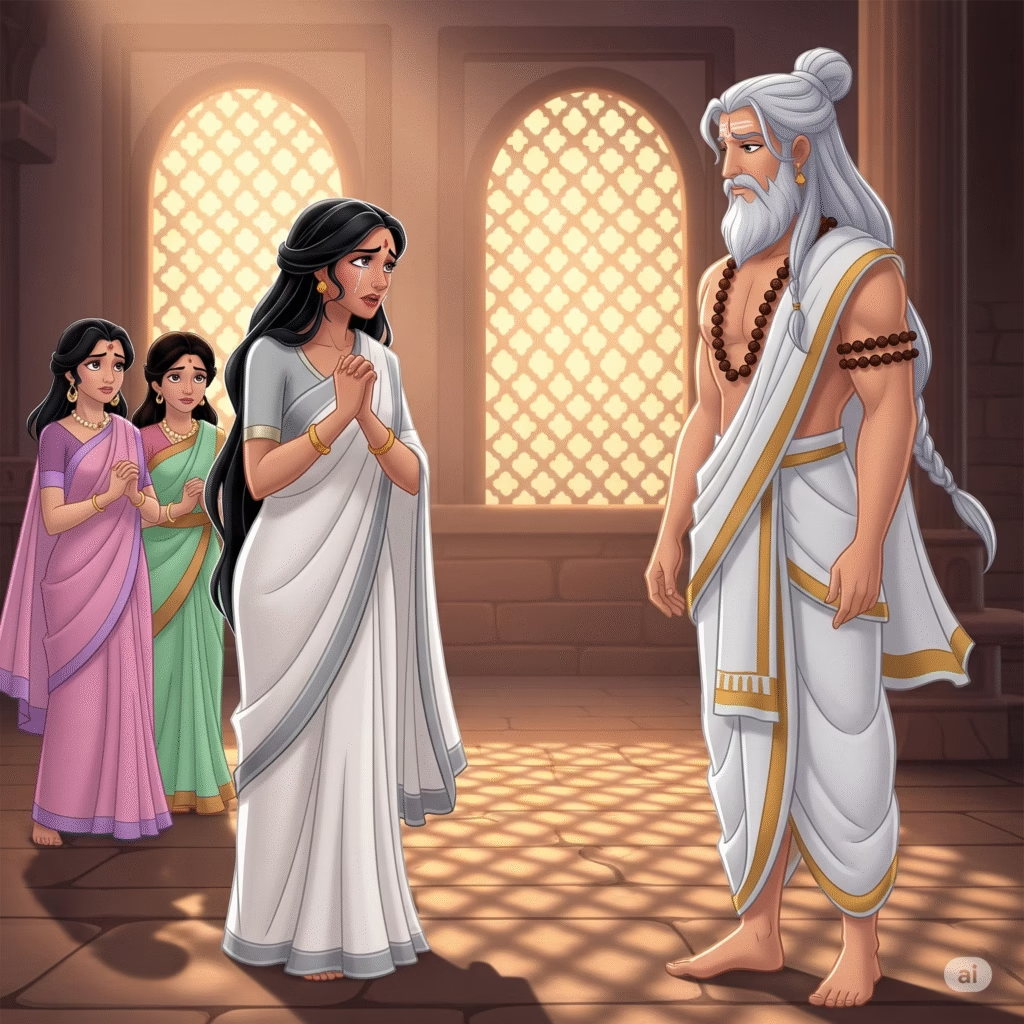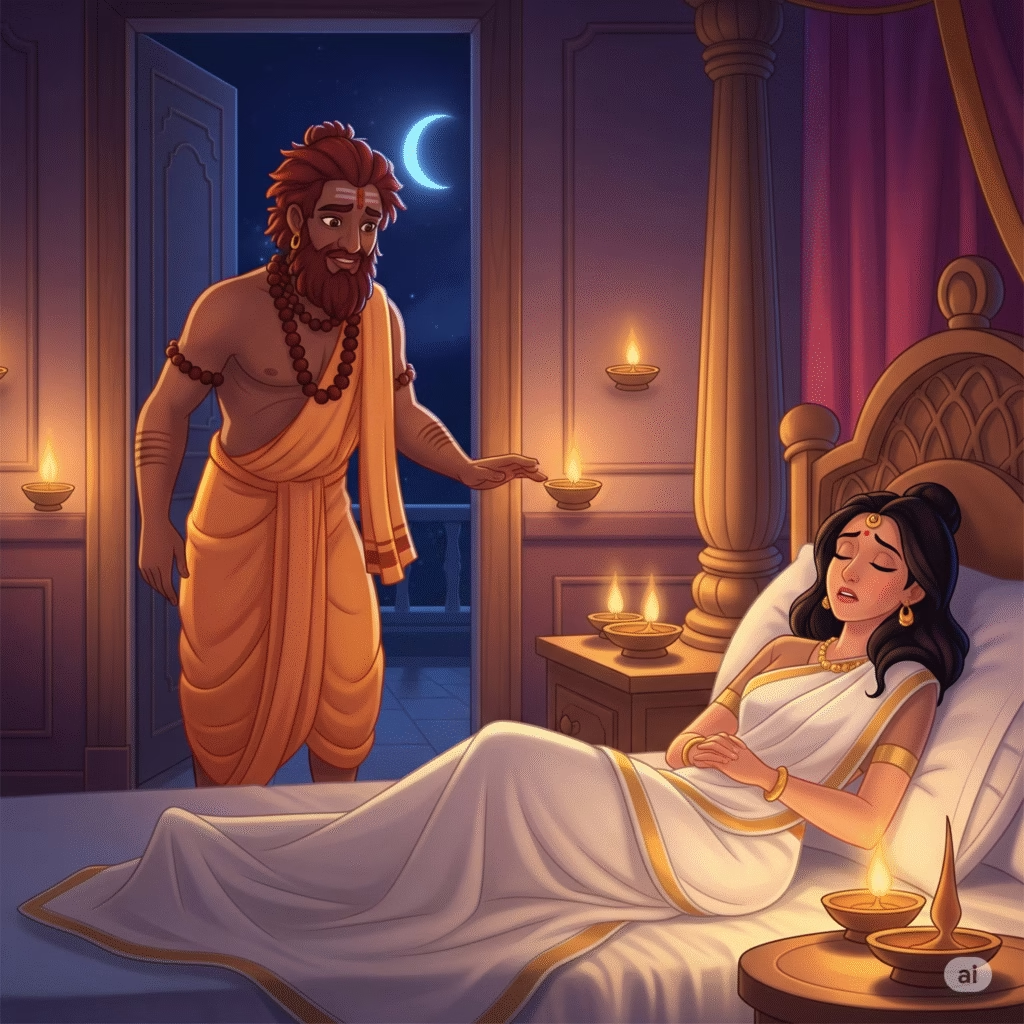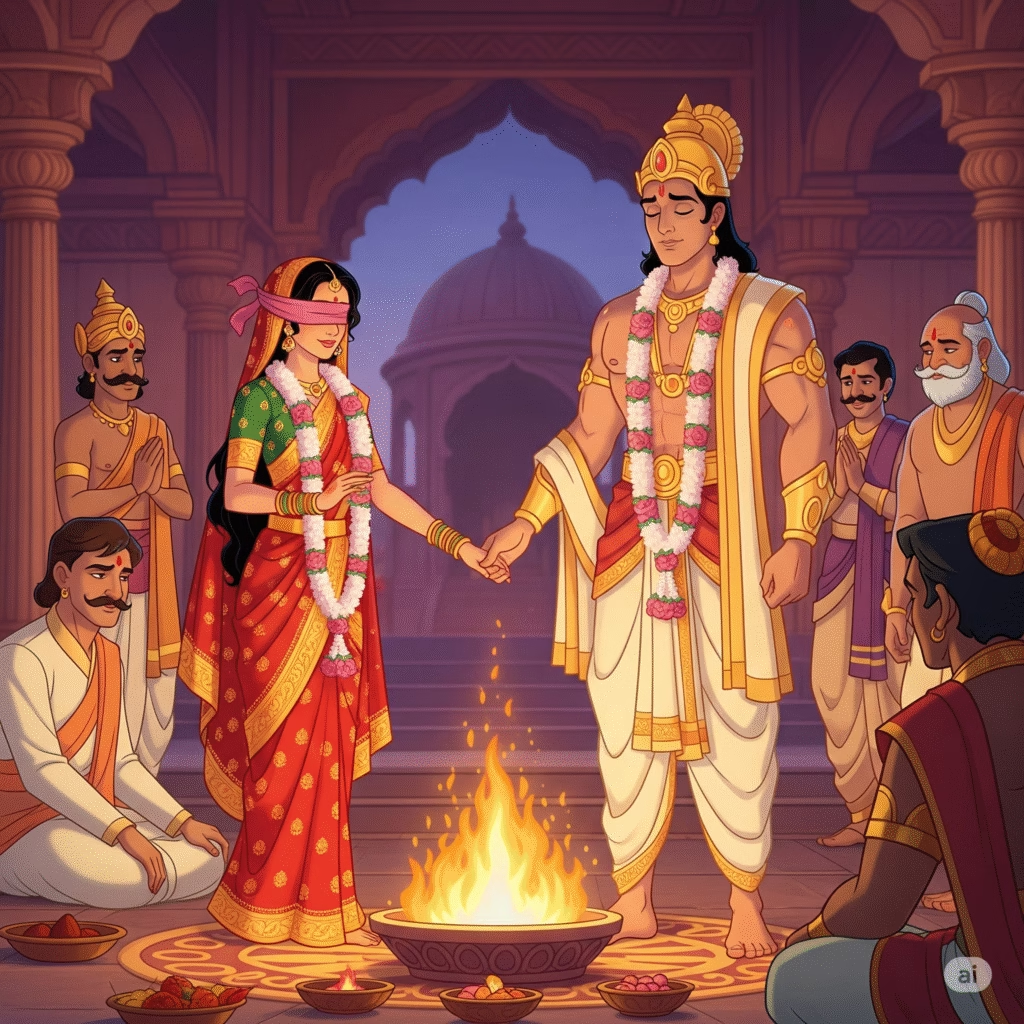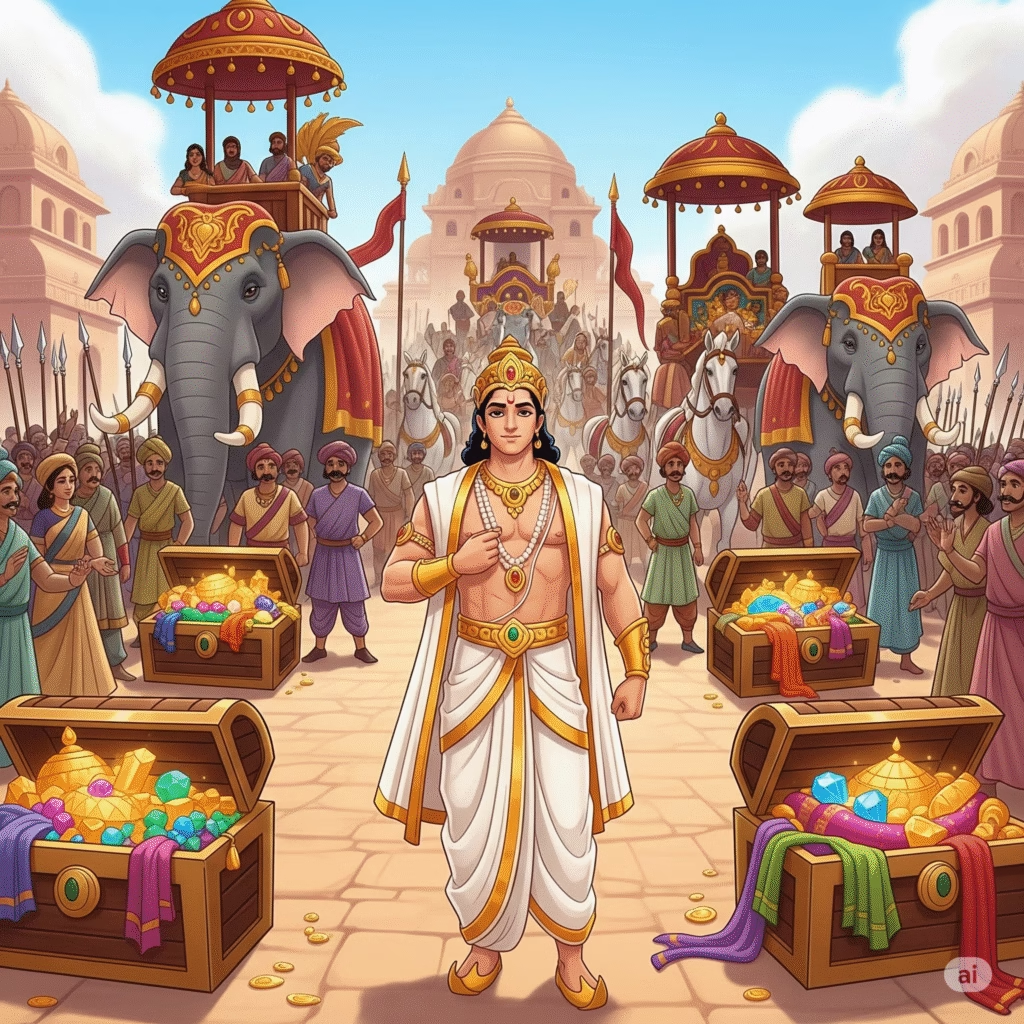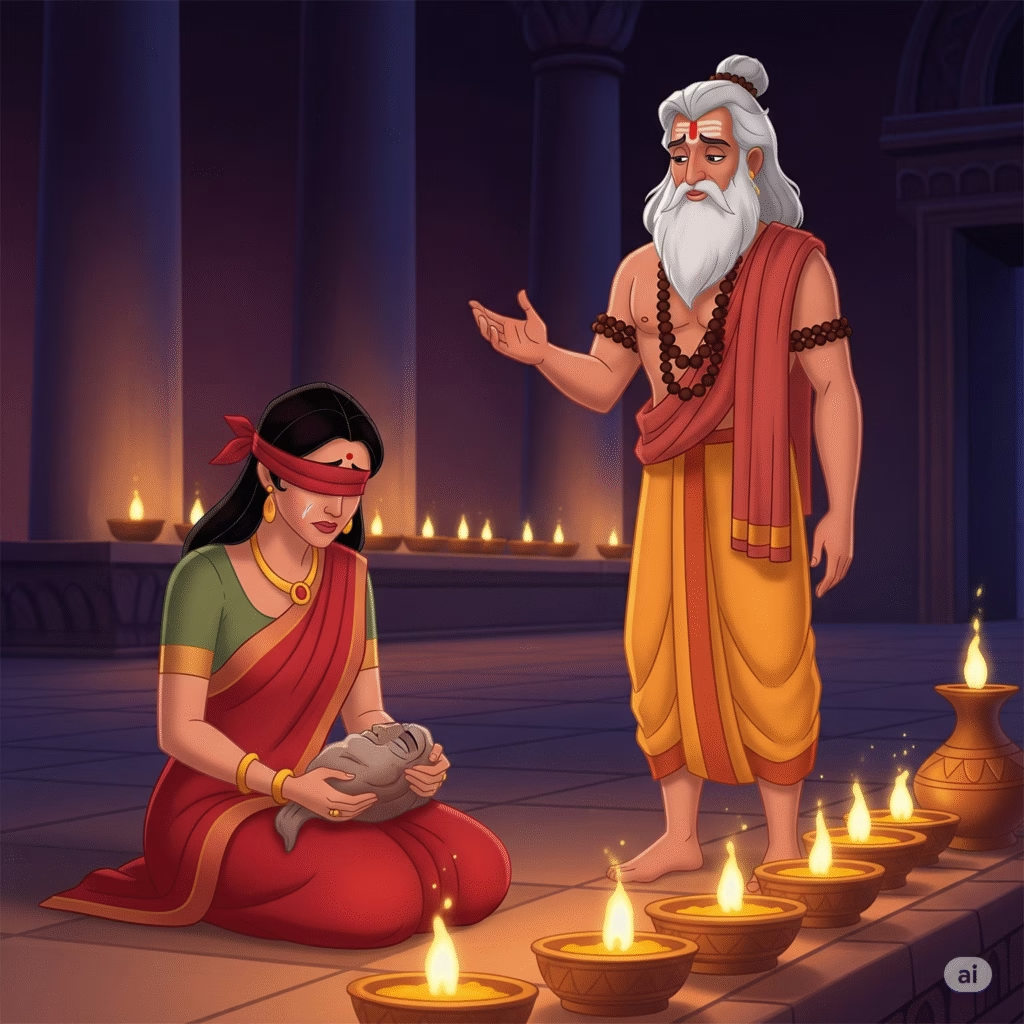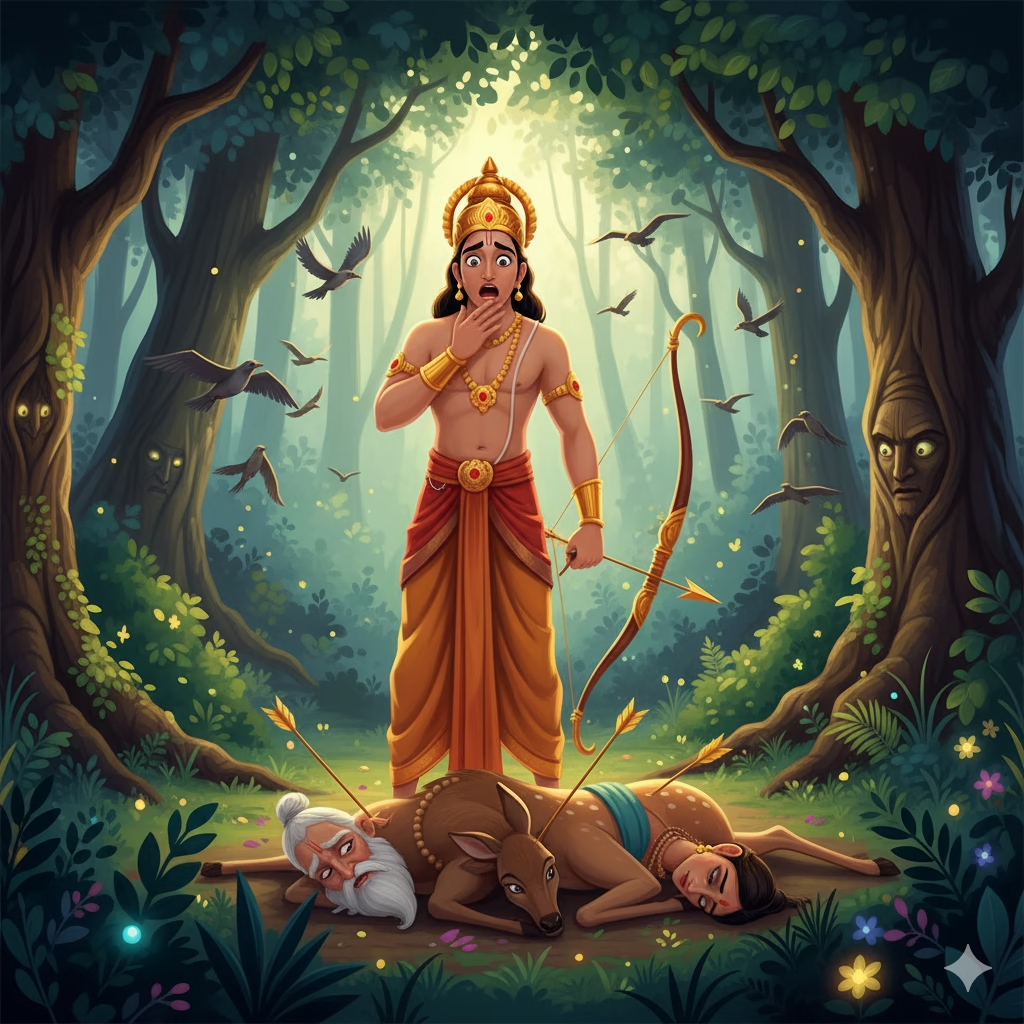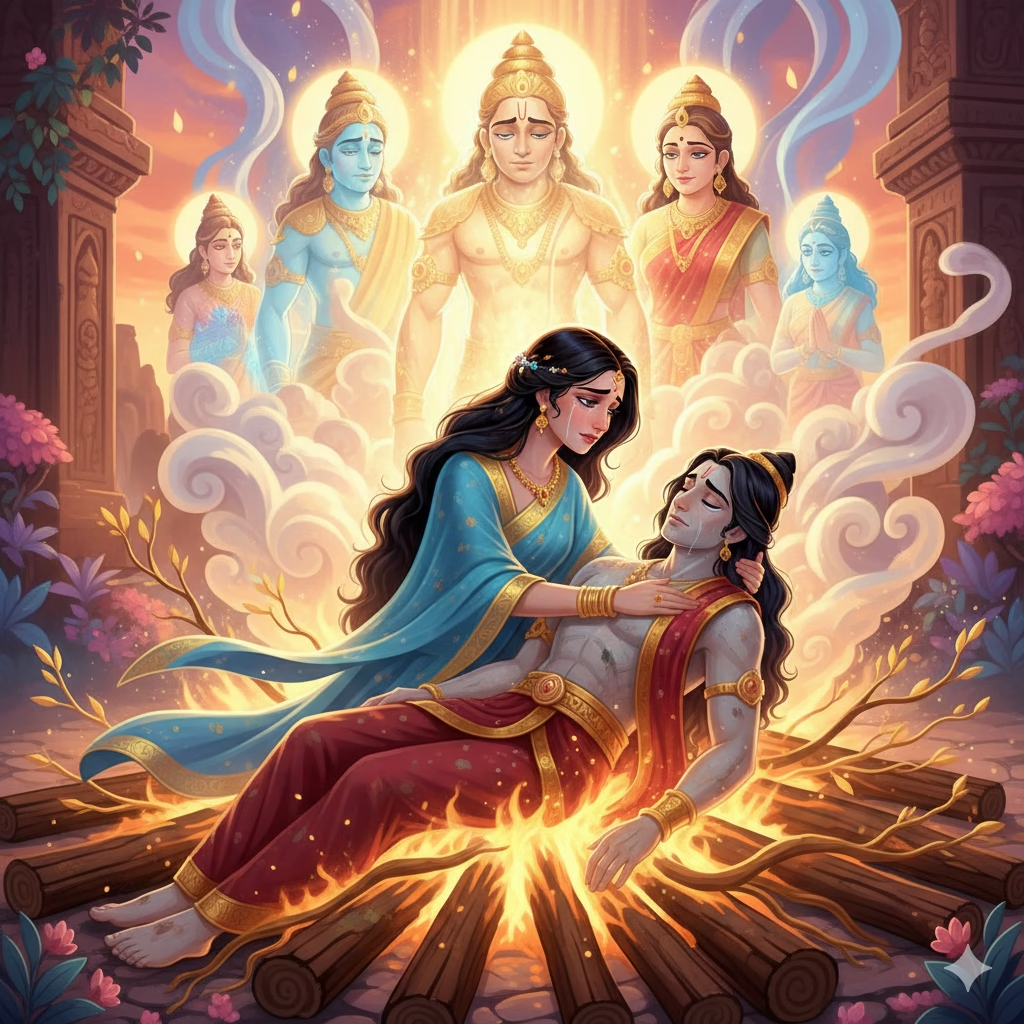In the royal court of Kuntibhoja, an extraordinary event was unfolding. The Swayamvara of the princess Kunti was drawing kings from all directions. She was a woman of unmatched grace and discipline. Dharma flowed through her being like breath, and beauty adorned her without effort. Kings and princes came with hope in their eyes, elephants in their processions, and pride in their posture. But her eyes? They rested only on one man—Pandu, the silent lion among kings. He sat calm and radiant, his chest broad, his gaze like a bull’s—steady, noble, untouched by vanity. The moment she saw him, something within Kunti stirred. And in that swelling tide of feeling, she found no need for questions, no room for logic. She simply walked towards him, shyly, and gently placed the garland of choice around his neck. There was no contest. There was no speech. There was only a girl who chose and a man who received without knowing he had been chosen.
The assembled kings, honouring the spirit of the swayamvara, departed with dignity. Kuntibhoja performed the wedding with due rituals and blessed his daughter as she left for Hastinapura with Pandu. She was now a queen—but would she be a wife in truth? Pandu and Kunti were received in Hastinapura with reverence. The Vedic chants, the blessings of rishis, and the smiles of the people made it all seem perfect. But destiny was still writing with a hidden pen.
Bhishma, ever the guardian of the Kuru legacy, began to search for another suitable alliance for Pandu. He arrived with the full honour of chariots and sages in the land of Madra. King Shalya welcomed him with royal grace. When Bhishma requested the hand of his sister Mādrī for Pandu, Shalya agreed with reverence but added one twist—”In our kingdom,” he said, “there is a tradition: the groom must offer a token of wealth—however symbolic—to uphold our family dharma.” Bhishma did not flinch. The guardian of Hastinapura offered gold, gems, horses, and elephants—wealth fit for many kings. Shalya was pleased, but more importantly, he was moved by Bhishma’s respect for tradition. Mādrī, adorned with ornaments, was entrusted to Bhishma, and a second royal wedding was conducted with due rites.
We often think love must announce itself with fanfare—words, vows, confirmations. But sometimes, love is silent. Sometimes, it garlands you before you even know you were chosen. And sometimes, it steps aside—like Kunti did—without resistance, when life brings another into the story. Kunti never objected to Pandu’s second marriage. Was it grace? Was it fear? We do not know. But silence, once again, shaped fate. What does it take to not flinch when your place is no longer yours alone? To smile as another woman walks into a space that once echoed with your footsteps? To stand still in the face of being seconded, not by rejection, but by circumstance? It’s tempting to call it a strength—this silence. To drape it in nobility, to admire it as a sacrifice. But what if it is something else entirely? What if Kunti had simply run out of words long before this moment arrived? She had seen too much. Born a princess but given away, raised with honour yet never entirely hers. Entrusted with a divine mantra, blessed with a child, and then left to carry that secret as shame. She had already learned that asking—even from the gods—came at a cost. Claiming joy openly could end in sorrow. So perhaps, when Pandu married again, she chose not to ask. Not, “Why her?” Not, “Am I not enough?” Not even, “Do you still love me?” Because sometimes the heart grows tired of seeking answers it knows will never be spoken aloud. And perhaps, just perhaps, she believed that true love does not need to be defended—that if it is real, it will survive, even if shared. And so she stepped aside—not out of weakness, but from a quiet resolve. She accepted Mādrī not as competition, but as a reality. But grace, when not balanced with expression, becomes a burden stitched in silence. And silence, when held too long, becomes invisible grief. History rarely tells us what Kunti felt. It celebrates her strength, her poise, and her dharmic endurance. But we must ask: Did her heart ache quietly each time Pandu smiled at Mādrī? Did her eyes search for a lost exclusivity in their moments together? Did she ever cry—alone, unheard—because she had made herself too noble to protest? This is the silent wound of many women—praised for their selflessness, admired for their composure, but slowly hollowed by a lifetime of not asking, not speaking, and not needing. And yet, this silence would later become the soil in which Karna was buried, Yudhishthira was crowned, and Draupadi would be humiliated. A silence that passed from one generation to another like a whispered legacy. It began with a garland placed in love and a voice withheld in pain. Kunti’s silence was not empty. It was full of restraint, of unresolved emotion, of an aching nobility. And sometimes, that kind of fullness is the heaviest thing to carry.
Journaling Prompts
- When love shifts—when you are no longer someone’s only—how do you respond?
- Can you hold space for others without losing yourself? Is there a moment from your past that you revisit silently, still longing to ask, ‘Do I still matter?’
- What does dignity mean to you? Is it something you wear with pride, or something you hide behind when you feel unseen?

